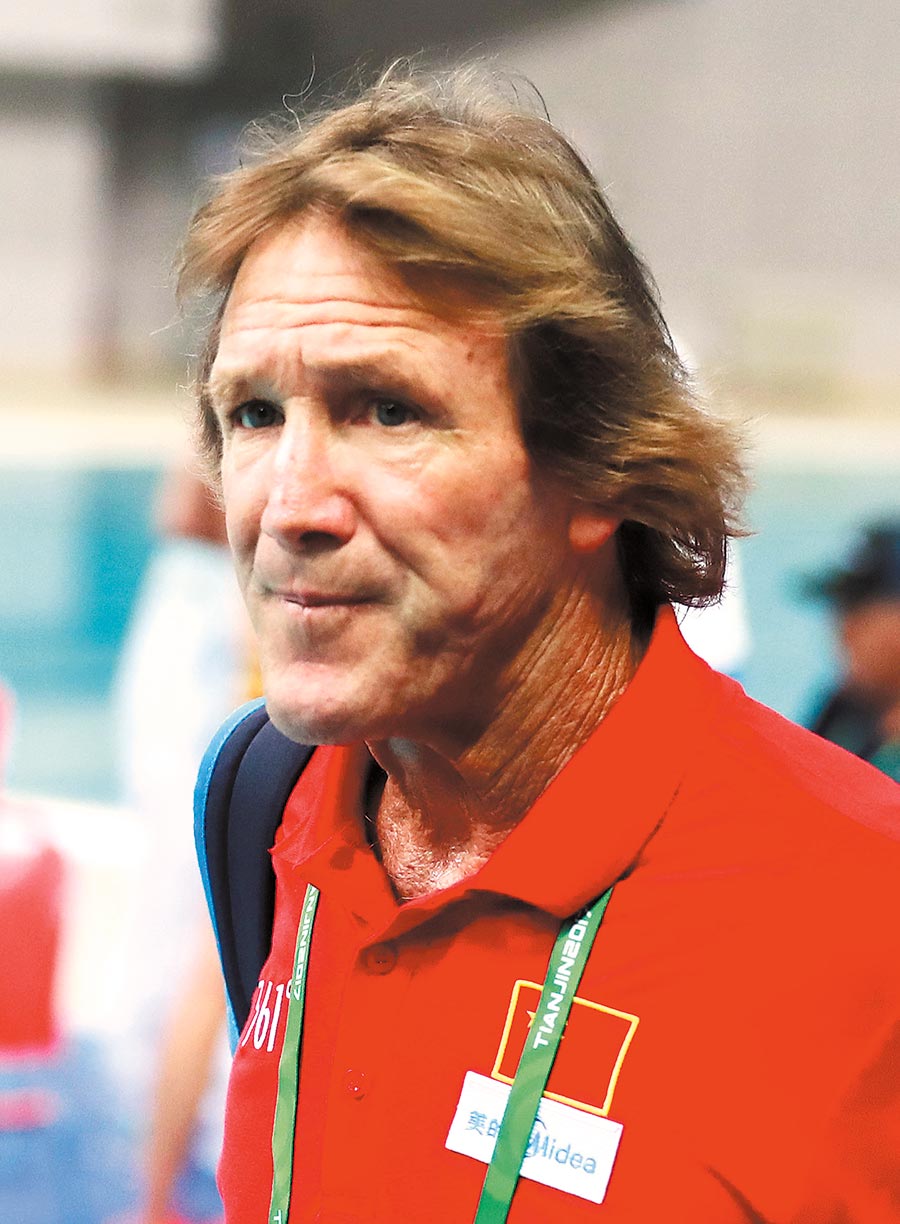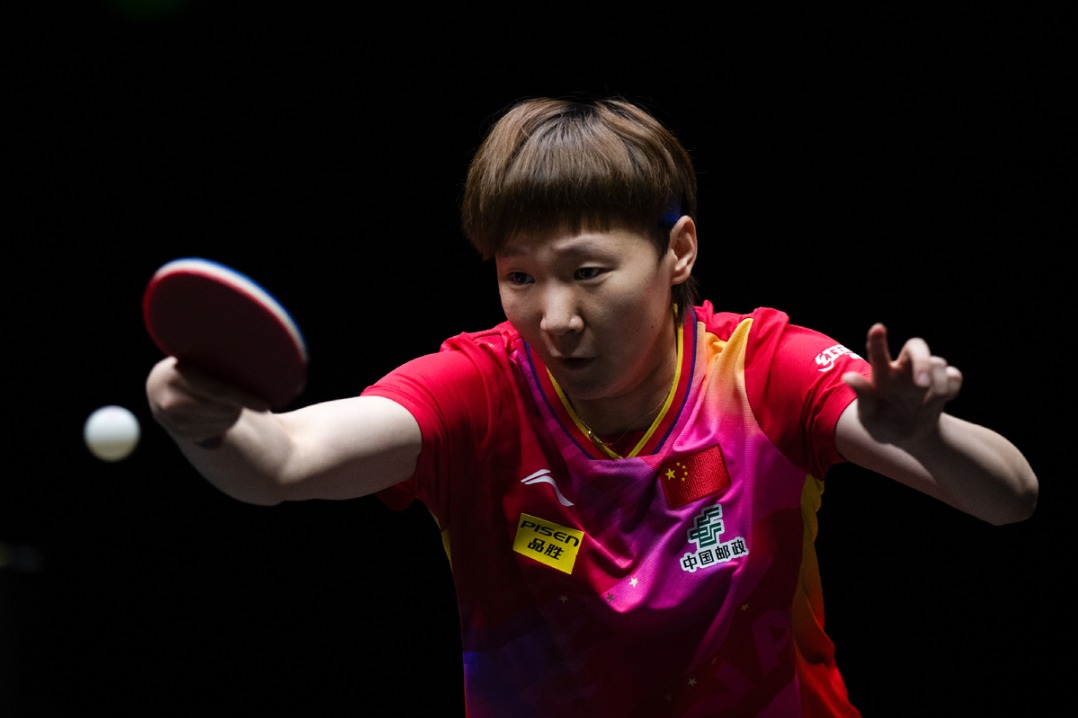Australian coach rejects doping claims
Cotterell asserts that Team China is determined to ensure sport stays clean

Renowned swimming coach Denis Cotterell of Australia has defended the integrity of Chinese swimming against recent misleading reports playing up a contamination incident that resulted in positive tests involving Chinese athletes.

With three months to go before the 2024 Olympics open in Paris, some media reports published and circulated over the weekend have disrupted China's ongoing Olympic trials this week with allegations — which have been labeled as "misleading and potentially defamatory "by the World Anti-Doping Agency — that a series of positive cases involving Chinese swimmers had been covered up prior to the Tokyo Games.
China Anti-Doping Agency (CHINADA) responded immediately following the revelation, claiming that the hyped positive testing results for banned substance trimetazidine (TMZ), found at a national meet in June 2021, were proven to be caused by contamination, inadvertently exposing athletes during the event, which was reported to WADA, and World Aquatics, transparently and in a timely manner.
The global anti-doping authority later agreed with CHINADA's conclusion after running its own independent and scientific reviews, clearing all of the Chinese athletes involved from any wrongdoing without "concrete basis to challenge the asserted contamination", according to a statement released by WADA on Saturday.
As mentor to multiple Australian and Chinese Olympic champion swimmers, Cotterell, who is working with the Chinese Swimming Association for Paris 2024, told The Sydney Morning Herald that he rejected "any suggestion of anything orchestrated" in terms of intentional use of banned substances within China's national swimming program.
"Am I confident that it's not dastardly? Not for one minute (do I believe that). I wouldn't be here (if it was)," Cotterell told the newspaper by phone from the pool deck of the Chinese Olympic trials in Shenzhen, Guangdong province in comments published Monday.
"I am happy to say that I'm absolutely in support of my swimmers and dispute any suggestion of anything orchestrated," the 74-year-old said.
The report was first published by The New York Times, working with German broadcaster ARD, on Saturday, citing a review of confidential documents and emails.
ARD aired a documentary on the subject on Sunday, with the Montreal-based WADA issuing a second statement afterwards. "The agency still stands firmly by the results of its scientific investigation and legal decision concerning the case," it said.
WADA said that, based on available scientific evidence and intelligence, "which was gathered, assessed and tested by experts in the pharmacology of TMZ; and, by anti-doping experts," it had no basis under the global anti-doping code to challenge the Chinese agency's findings of environmental contamination.
WADA said the position was also accepted by World Aquatics.
WADA scheduled a news conference late on Monday night (Beijing time), with its president Witold Banka and director general Olivier Niggli on hand to answer questions.
Cotterell, who has had an on-off association with Chinese swimming for more than a decade, said he was speaking from first-hand experience.
"I see what they (the swimmers) go through, I see the measures, I can tell you the stories. I know the facts and I am comfortable," he said.
"The suggestion that it's systemic is so far from anything I have seen here the whole time. They are so adamant on having clean sport," said Cotterell, who steered Australian distance swimmer Grant Hackett to three Olympic gold medals at Sydney 2000 and Athens 2004.
Cotterell spoke of the conditions that Chinese swimmers have to endure from a young age. Once the swimmers turn 14, they are not allowed to eat in public due to the risk of contaminated food. Cotterell also gave an example of traveling and dealing with food in the airports, as the swimmers are not allowed to eat in public places.
"We were held up for six hours recently. They were stuck in the airport. They can't go and eat any food anywhere. The national training base had to prepare food and send it to the airport for the kids to eat. That is their daily life. That's the precautions they take, and sacrifices they make, to avoid that risk," he said.
China's anti-doping authority and swimming association have yet to publicly comment, further.
Cotterell said that he was not authorized to speak on their behalf and was "on a hiding to nothing" by giving an interview.
But, he said, he wanted to fight for the integrity of himself and Chinese swimming.
"I can understand if they (other athletes) are (upset), that's their prerogative," he said.
"I sympathize on other fronts for other reasons. How it was handled, that's the point of conjecture. I know what they have to endure here.
"It's sad that their names (the swimmers) are caught up in unfortunate circumstances beyond their control."
CHINA DAILY - AGENCIES
Most Popular
- Chinese ace stuns world no 6 Rublev, advances to China Open semis
- Zheng defeats Podoroska to set up Anisimova rematch
- Antoine Griezmann announces retirement from international football
- World No. 3 Wang Manyu reaches last 32 at WTT China Smash
- City's draw with Newcastle allows Liverpool to snag top spot
- Osasuna stuns Barca in four-midable display
































